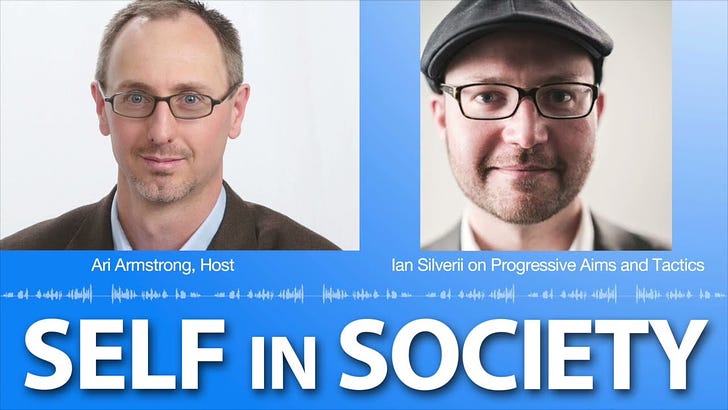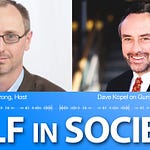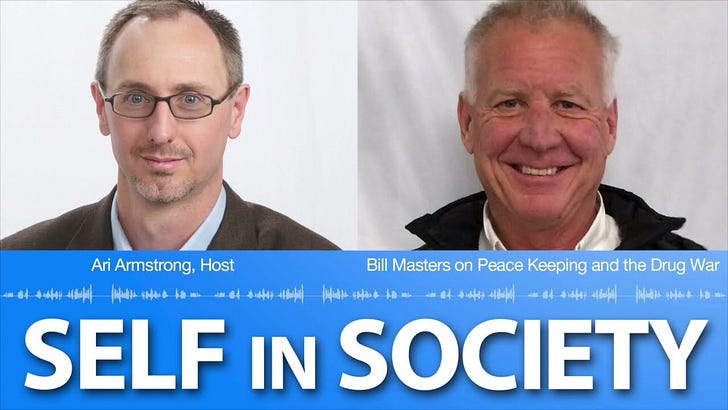Robert Zubrin, head of the Mars Society and of Pioneer Astronautics, discusses his new book, The Case for Space.
Zubrin discusses how he became interested in space, his vision for a spacefaring civilization within the next fifty years, his Mars Direct plan, and his views on why people should focus at least at the outset on settling planets and moons rather than O'Neill Colonies.
Zubrin also explains why humanity should head toward the stars to look for life, to probe the mysteries of the universe, to protect the Earth from asteroid impacts, to open a challenging new frontier, and to demonstrate conclusively that human beings thrive not by forcibly taking resources from others but by collaboratively creating new resources.
Background
I’ve known Robert Zubrin for several years now. I’m fortunate that he works just a few miles down the street from me, in Lakewood, Colorado; we recorded in his office at Pioneer Astronautics.
I first ran into Zubrin years ago when he spoke at a local libertarian event (I no longer call myself a libertarian, but I did then). I read his book The Case for Mars (1996) and was hooked on his no-nonsense “Mars Direct” plan for getting to the Red Planet.
I drove to Zubrin’s office for the interview and walked in to find it filled with stacks of books and journals, with its walls covered with posters and artwork about Mars and space. On Zubrin’s door, under his name, is a sign, “Reality is Relevant.” Above Zubrin’s desk hangs a large original painting of a futuristic Mars outpost by Robert Murray; the work also appears in Zubrin’s new book and in an article that Zubrin wrote for Medium.
I walked into Zubrin’s office and said hello; he looked up with an intense look and said, “I have to finish this,” as he pounded away on a laptop computer next to his desktop. As I waited I chatted briefly with a couple of the scientists working in the other room.
As I wrote up these show notes, Zubrin confirmed via email that he had left Pioneer Energy, which he had founded in 2007, in September 2017, saying he was “no longer active in its management.”
Zubrin’s politics is a blend of classical liberalism (he started a Liberal Party group on Facebook), secular conservatism, and free-wheeling libertarianism. In 2016 we both tried, fruitlessly, to keep Donald Trump from getting the Republican nomination for president; I did a short video interview with him then. A flyer that Zubrin passed around caused a bit of a stir, as I wrote about at the time. During our interview we didn’t talk about politics at all, except for some of the “politics” of NASA.
I did not push back on Zubrin’s view that space settlement requires major government funding. My belief (or at least my hope) is that, under a bounded state with low (or no) taxes, the economy would be sufficiently robust, and people would have sufficient resources, to fund space exploration mostly on their own. However, I concede a legitimate military interest in developing space, and obviously this would have spillover effects for private space exploration.
I will point out here that Zubrin has written about the influential Russian philosopher Alexander Dugin, whom he (justifiably) describes in his new book as a fascist. I found Zubrin’s article on the man to be terrifying.
I deeply enjoyed reading Zubrin’s new book and chatting with him about it, and I hope that you also enjoy his book and this podcast episode.
Show Notes
I pulled out a two-minute clip of the interview, consisting of Zubrin reading from The Case for Space the summary of his vision for space exploration over the next fifty years.
Zubrin founded Pioneer Astronautics in 1996, and he continues to run the business as its owner and president.
People can join the Mars Society, join its email list, or read the organization’s extensive library of papers.
In a May 9, 2019 talk, Jeff Bezos advocated the vision of Gerard O’Neill, who envisions gigantic space stations for large, permanent human settlements. I asked Zubrin about this, and he replied (sensibly in my view) that we need to start with the planets because it’s far easier to settle a world than to create one.
Zubrin mentions Russian “fascist philosopher” Alexander Dugin in his book; in 2014, Zubrin wrote an article about Dugin for National Review.
Zubrin appears as one of the commentators for National Geographic’s Mars series, a show that blends a fictional portrayal of a Mars base with documentary footage. Zubrin has his own IMDB page (which I thought was cool).
For a twenty-minute version of the Mars Direct plan, see Zubrin’s 2016 TEDX talk.













Robert Zubrin on the Case for Space: Self in Society #1